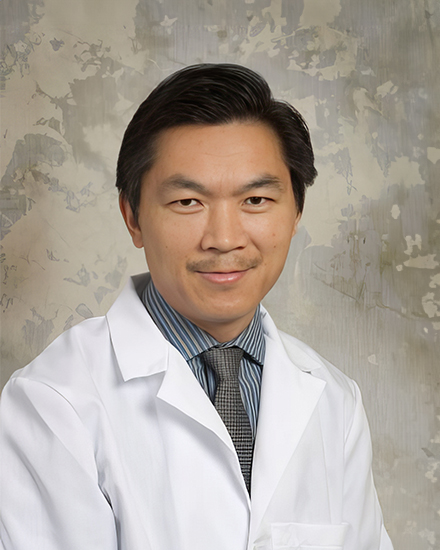
Roles
Professor of Microbiology and Immunology
Director of Graduate Program in Microbiology and Immunology
-
Biography
Dr. Chen is an immunologist. He studies the mechanisms of autoimmune diseases, infection and cancer, to understand the diseases and discover new interventions. His lab focuses on mucosal immunology and cancer immunology. Dr. Chen received his clinical medicine training in Luzhou Medical College (now Southwest Medical University) in China. He obtained his PhD training in immunology at Duke University and postdoctoral research fellowship in immunology at Harvard University. In 2007, he joined the faculty of the Department of Microbiology and Immunology at the Miller School of Medicine of the University of Miami as an Assistant Professor. He is now a Professor in this department.
From the time of being a medical student to the current stage of being an independent investigator, Dr. Chen has always been galvanized by the double-edged powers of the immune system in causing many diseases while also holding the key to health and healing. During his PhD training, he discovered the causal role of complement C4 deficiency in Systemic Lupus Erythematosus (SLE). In his postdoctoral research, he discovered a major function of regulatory T cells in nonlymphoid tissue to suppress tissue damage. As an independent investigator, Dr. Chen has overseen a number of projects conducted by PhD students in his lab that have led to discoveries of cellular contact-based interaction between regulatory T cells and destructive T cells in vivo, bystander tissue cell regeneration in the setting of immune-mediated tissue destruction, the role of effector memory T cells in perpetuate autoimmune damage, the conversion of CD8 T cell lineage to CD4 T cells that generated MHC class I-restricted regulatory T (CI-Treg) cells. Recently, Dr. Chen’s lab discovered the causal role of CTLA4 insufficiency in cancer development, a new etiology suggested by clinical observations in human patients with CTLA4 haploinsufficiency, and the underlining mechanisms through autoimmunity-driven type 2 inflammation. The autoimmune mechanism of tumorigenesis uncovered by Dr. Chen’s team may offer clues to the cause of raising incidences of cancer development in young adults, alarming trends uncovered by recent epidemiology studies.
In Dr. Chen’s career as a scientist and educator, one of the most fulfilling aspects he finds is working closely with students to encourage independent scientific minds. He also tries his best to cultivate team-science spirit by providing students with various collaborations. Although his lab is small, he has secured extensive intramural and extramural collaborations for interdisciplinary studies for discovery as well as translational research. -
Education & Training
Education
Post Graduate Training
-
Honors & Awards
No result found
-
Teaching Interests
In classroom, I have extensive experience teaching PhD, MD or undergraduate students in didactic format or small group discussion, in conventional venues or in Zoom. I have been serving as the course director for 15 years for “Principles of Immunology,” a course offered to PhD students at University of Miami. Each year, I give a lecture on immune therapy for all first year PhD students in the Miller School of Medicine. I also give a lecture on cancer immunology for PhD students taking a cancer biology course. I teach undergraduate students on immunology, with series lectures on the historic intrigues of Suppressor and Regulatory T cells in immunology, on the saga from one of the most infamous artifacts in immunological research to the triumph of one greatest immunological discoveries, on the fallacy and vanity in us (including us the immunologists) as human beings, which are eventually overcome by humanity’s tenacity and innate thirst for truths. Yet at the end, I tell students the biggest challenge to their generations is not just learning science and making discoveries, but also making sure that science is communicated more effectively than anti-science.
Outside of conventional classroom, I have always been dedicating a major effort in training the next generations of scientists. I have advised 25 PhD or MD/PhD students for their dissertation research. I open my lab for medical students for their research and for undergraduate students to get research experience, often as a part of their credited research training course works. -
Research Interests
With a broad training in medicine, immunology and molecular biology, Dr. Chen’s research span from discovery-oriented studies in fundamental immunological science to pre-clinical and clinical studies of autoimmune diseases, cancer immunology and immune therapy. A major goal in Dr. Chen’s lab is to help bridge genetic and genomic discoveries to biology and pathophysiology, by developing in vivo disease models as well as in vitro cell culture assays for mechanistic studies and searching for interventions against diseases. Furthermore, Dr. Chen’s group use their immunological expertise to design and develop large panels of multiplex assays to profile both immune and non-immune cells in human diseases and clinical trial settings.
A particular focus of Dr. Chen research program is to understand the relationship of immunity, immune tolerance, inflammation, and cancer. His team strives to delineate novel conceptual frameworks for autoimmunity-driven tumorigenesis which is thought to be a potential cause of the raising incidences of cancer developments in young adults. They examine the roles of distinct inflammatory pathways in tissue damage, inflammatory pain, tissue regeneration and wound healing as well as tumorigenesis. They are particularly interested in the intertwining molecular and cellular mechanisms of immune cell maturation and differentiation, memory formation, metabolism, exhaustion, senescence as well as lineage specification and plasticity. -
Publications
Disclaimer: The information presented in this section has been consolidated using AI and machine learning technologies. While every effort has been made to ensure accuracy, errors may occur. If you identify any inaccuracies, please use this link to inform our data team. Your feedback is greatly appreciated and helps us improve the quality of our content.
-
Professional Activities
No result found

